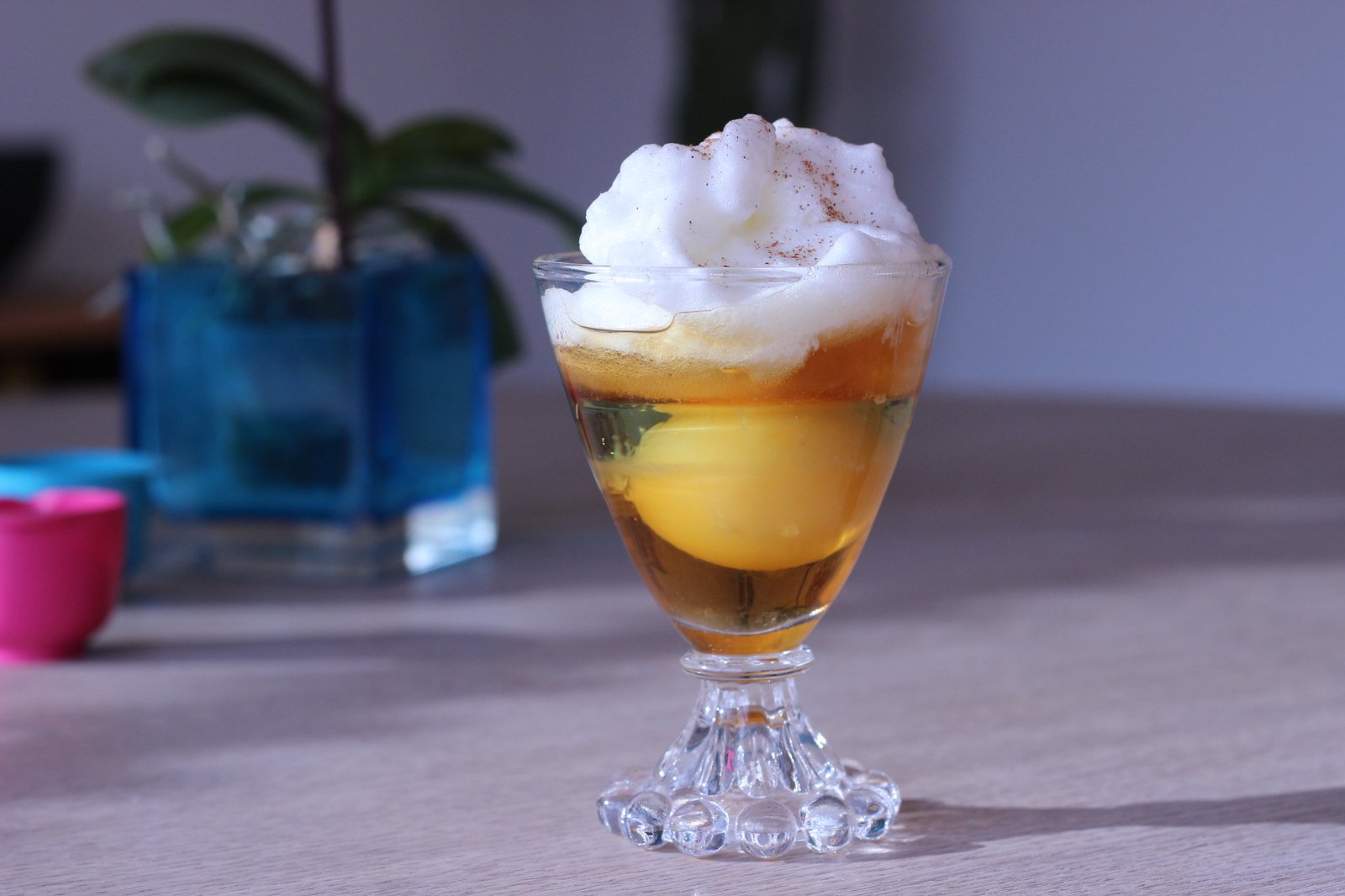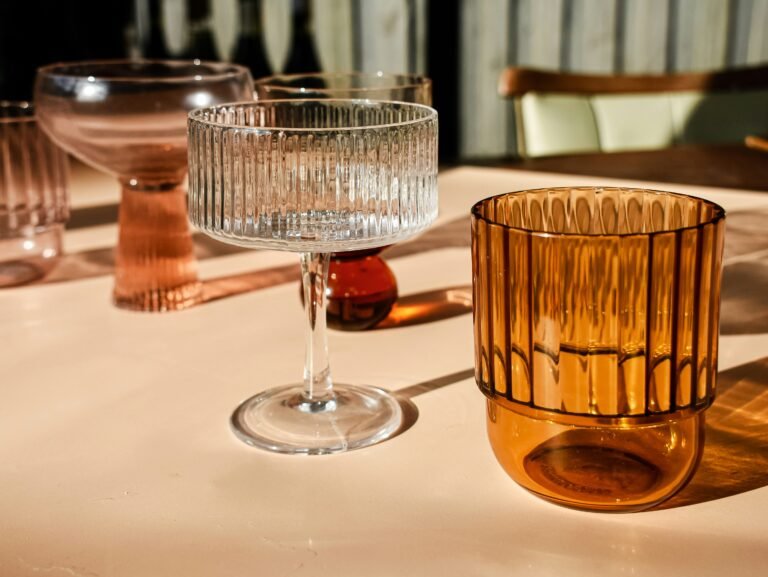Is It Safe To Use Raw Egg in Cocktails?
- Raw eggs add richness to classic cocktails like flips and fizzes but raise food safety concerns.
- Consuming raw eggs risks potential illness from salmonella or bacteria for some groups.
- Proper handling of fresh eggs minimizes risks, and egg substitutes are an option.
Benefits of Using Raw Egg in Cocktails
Putting raw egg in cocktails does a lot more than you might think. It gives drinks a smooth, creamy feel that makes the taste better. The egg also helps mix the drink’s different parts well together.
Smooth, Creamy Feel
The fat and protein in the egg yolk make cocktails feel rich and creamy. This special texture is why classic drinks like the Flip or Fizz are so loved. Even a little bit of egg can add a touch of luxury to a drink.
Mixing Ingredients Together
Egg whites have proteins that are really good at mixing things that usually don’t blend, like juice and alcohol. This keeps the drink mixed evenly.
A Long Tradition
Putting raw egg in drinks is an old method, used for hundreds of years. Classic cocktails like the Whiskey Sour and Pisco Sour wouldn’t be the same without egg. Drinking these cocktails today connects us to the past.
Showing Off Bartending Skills
For bartenders, using raw egg is a way to show off their skill and creativity. Making perfect egg-white foams or blending yolks smoothly takes practice. Cocktails made well with egg show a bartender’s expertise.
Egg Substitutes for Cocktails
Aquafaba
Aquafaba, the liquid from canned chickpeas, is a popular vegan substitute for egg whites. It whips up into a foam just like egg whites, perfect for creating the frothy top of cocktails like sours and fizzes. This option is great for adding volume without changing the taste.
Agar-Agar
Agar-Agar, a gelatin made from seaweed, can replace egg whites to add a silky texture to cocktails. When dissolved in water and cooled, it thickens, creating a texture similar to that of egg whites. Use it to bind ingredients together in shaken drinks.
Coconut Cream
Coconut cream offers a rich, velvety texture similar to egg yolks. Ideal for creamy cocktails, it blends smoothly into the mix, adding a slight tropical hint. This is perfect for those looking for a lush mouthfeel in their drinks.
Soy Lecithin
Soy lecithin is a fatty substance that acts as an emulsifier, similar to egg yolks. A small amount can help blend and stabilize the ingredients in cocktails, creating a smooth consistency. It’s especially useful in vegan recipes.
Does alcohol sterilize raw eggs?
No, alcohol alone does not sterilize or kill any harmful bacteria that may be present in raw eggs. Even though cocktails contain alcoholic spirits, the alcohol content is not high enough to make the raw eggs safe to consume.
Alcohol needs to be very concentrated, around 60% or higher, to effectively kill germs like salmonella that can be found in raw eggs.
Most alcoholic beverages do not come anywhere close to that level. For example, vodka is only about 40% alcohol, while whiskey is typically 40-50% alcohol.
So while the alcohol in cocktails may give some protection against bacteria, it cannot fully sterilize or eliminate any potential risks from using raw egg.
Safety Precautions
- Choose Pasteurized Eggs: Pasteurized eggs have been heat-treated to kill bacteria without cooking the egg. Using them significantly reduces the risk of salmonella.
- Check the Expiry Date: Always use eggs that are fresh and well within their use-by date to ensure they are at their safest.
- Inspect the Eggs: Look for cracks or breaks in the shell before use, as bacteria can enter through these imperfections.
- Refrigerate Properly: Store eggs in the refrigerator at a temperature below 40°F (4°C) until ready to use, and return unused eggs to the fridge promptly.
- Wash Hands and Utensils: Before and after handling raw eggs, wash your hands, as well as any utensils or surfaces that come into contact with the eggs, with soap and warm water.
- Avoid Cross-Contamination: Use separate containers and tools for handling raw eggs to prevent cross-contamination with other ingredients.
FAQ
1. What are the risks of using raw eggs in cocktails?
Using raw eggs can pose a risk of salmonella infection, a bacterial illness that can cause fever, diarrhea, and abdominal cramps.
2. How can I reduce the risk of salmonella when using raw eggs in cocktails?
To reduce the risk, use pasteurized eggs, ensure eggs are refrigerated and fresh, avoid using eggs with cracked shells, and practice good kitchen hygiene by washing hands and surfaces that come into contact with raw eggs.
3. Can pasteurized eggs be used in cocktails, and do they taste different?
Yes, pasteurized eggs can be used in cocktails and are recommended for safety. They do not taste different from regular eggs and provide the same texture and binding properties in drinks.
4. Is there an alternative to using raw eggs in cocktails?
Yes, there are alternatives like aquafaba (the liquid from canned chickpeas), agar-agar, or commercial egg substitutes that can mimic the texture and emulsifying properties of raw eggs without the associated risks.
5. How do I know if an egg is pasteurized?
Pasteurized eggs are usually labeled as such on the packaging.






